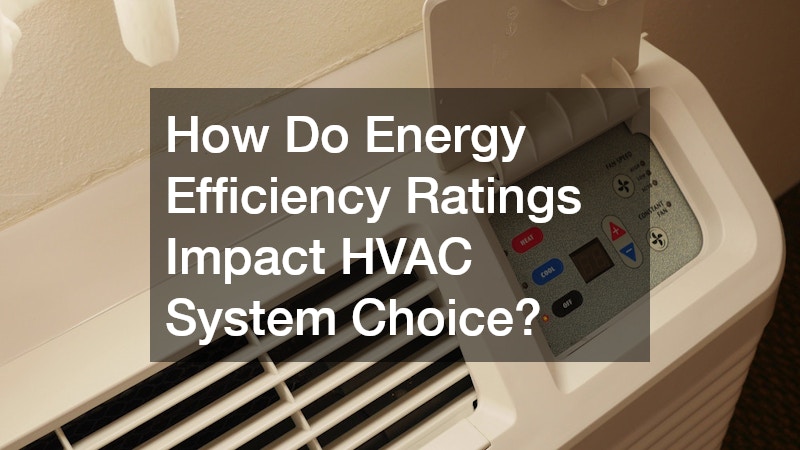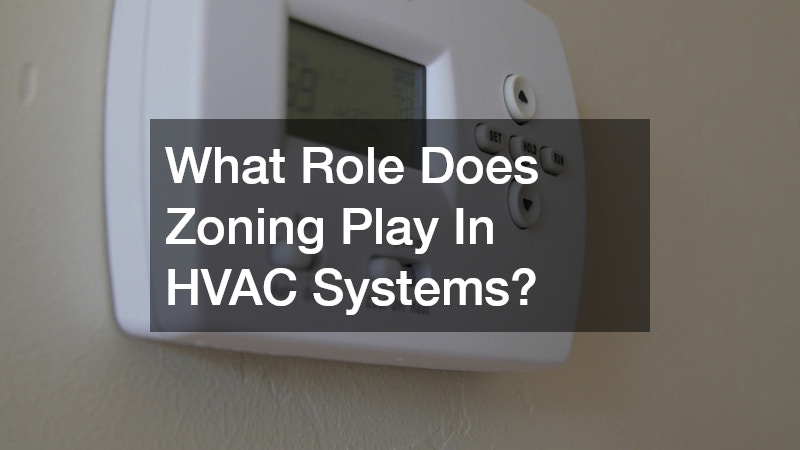
The Role of HVAC in Designing Complete Custom Homes
Designing complete custom homes goes far beyond selecting paint colors and countertops. One of the most critical yet often overlooked elements in a custom build is the HVAC system. Heating, ventilation, and air conditioning play a pivotal role in ensuring that a home is comfortable, efficient, and healthy. Whether you’re a builder or a homeowner embarking on the journey of creating a personalized living space, understanding the role of HVAC in custom home design is essential.
Modern HVAC systems contribute to more than just temperature control. They affect indoor air quality, humidity levels, and energy consumption. Poor HVAC planning can result in high energy bills, uneven heating and cooling, and maintenance headaches down the line. Given the tailored nature of complete custom homes, HVAC systems must be equally customized to suit the layout, location, and specific needs of the occupants.
This comprehensive guide will walk you through all the essentials of integrating HVAC into custom home design. From sizing and zoning to energy efficiency and cutting-edge technology, we’ll explore how to make informed HVAC decisions that enhance comfort and add long-term value to your custom-built dream home.
What Is HVAC And Why Is It Important In Custom Homes?

Definition of HVAC
HVAC stands for Heating, Ventilation, and Air Conditioning. These systems regulate the temperature, air quality, and humidity within your home. In complete custom homes, the HVAC system must be designed from the ground up to meet unique architectural and personal preferences.
Importance of HVAC Systems
An efficient HVAC system ensures consistent comfort throughout the house. It plays a key role in the health of your living environment by filtering pollutants and controlling moisture levels. HVAC is essential not only for comfort but also for protecting your home from mold and structural damage.
Types of HVAC Systems
There are several HVAC systems to choose from. These include split systems, ductless mini-splits, and geothermal units. Each type has its own benefits, and the right choice depends on the layout and goals of your complete custom home. Consulting with an experienced HVAC company is crucial when making this decision.
How Does HVAC Affect Indoor Air Quality?
Role of Filtration in Air Quality
A good HVAC system improves air quality through effective filtration. HEPA filters, for instance, can trap dust, pollen, and even bacteria. For custom homes, investing in high-grade filters is a smart way to support respiratory health.
Humidity Control and Its Impact
Maintaining the right humidity level is vital. Too much moisture can lead to mold, while too little can cause dry skin and respiratory issues. HVAC systems with built-in humidifiers and dehumidifiers can be customized for complete custom homes to maintain optimal indoor humidity.
Ventilation and Outdoor Air Influence
Proper ventilation ensures a steady flow of fresh air, reducing indoor pollutants. It also helps control odors and maintain a pleasant environment. Many HVAC companies recommend energy recovery ventilators (ERVs) for custom homes to balance air exchange without sacrificing efficiency.
What Factors Should Be Considered When Designing HVAC For Custom Homes?
Home Size and Layout
The square footage and design of your home significantly impact HVAC planning. Open-concept spaces, vaulted ceilings, and multi-level layouts all require specific strategies. Accurate HV AC installation based on home layout ensures consistent comfort in every room.
Climate Considerations
Your geographic location plays a crucial role. Homes in colder climates require stronger heating solutions, while those in hotter areas need efficient air conditioning install options. Climate also affects humidity and ventilation needs.
Occupant Lifestyle and Preferences
Do you work from home? Do you entertain frequently? These factors influence HVAC needs. A family that spends more time indoors might prioritize features like zoning and air purification. A reliable HVAC company can help tailor a solution to fit these unique preferences.
How Do Energy Efficiency Ratings Impact HVAC System Choice?

Understanding SEER and HSPF Ratings
SEER (Seasonal Energy Efficiency Ratio) measures the cooling efficiency of an air conditioning unit over an entire season, factoring in varying outdoor temperatures. HSPF (Heating Seasonal Performance Factor) is the equivalent metric for heat pumps in heating mode. The higher the number, the more efficient the unit. In complete custom homes, these ratings are essential tools for balancing comfort and cost. Builders and HVAC companies often rely on these numbers to design systems that are tailored to the specific energy demands of the home. This not only affects daily energy usage but also long-term sustainability goals.
The Long-Term Cost Benefits of Efficient Systems
Even though energy-efficient HVAC systems typically come with higher upfront costs, they provide significant long-term savings on utility bills. Over time, these savings can offset the initial investment, especially when combined with lower maintenance needs and longer lifespans. In complete custom homes, where design is highly personalized, selecting a high-efficiency HVAC system also supports environmental goals and enhances market appeal. Talking with your HVAC company or ac installers during the design phase can help you fully understand how these systems will impact your home’s long-term budget and performance.
Rebates and Incentives for Energy-Efficient HVAC
State and federal programs often provide financial incentives for homeowners who install high-efficiency systems. These rebates can come through tax credits, utility company programs, or manufacturer offers. Builders of complete custom homes should take time to research available incentives in their area to reduce costs. HVAC companies are often well-versed in these programs and can help guide clients through the application process. When you factor in rebates, the initial price difference between a standard and energy-efficient HVAC system becomes even more manageable.
What Are The Latest HVAC Technologies In Custom Home Design?
Smart Thermostats and Automation
Smart thermostats are game-changers for HVAC management, offering the ability to control temperature settings via smartphones, voice assistants, or automated schedules. These devices learn household habits and adjust temperatures accordingly, resulting in optimized energy use. For complete custom homes, this means you can build in intelligent climate control from the ground up. Some systems even integrate with broader smart home platforms, allowing for energy reports, alerts for maintenance needs, and seamless coordination with lighting and security systems.
Ductless Mini-Split Systems
Ductless mini-split systems are increasingly popular in modern home designs. These systems consist of an outdoor compressor and one or more indoor air-handling units. They’re ideal for complete custom homes with unconventional layouts, remote additions, or rooms that require independent temperature control. Since they don’t require ductwork, installation is quicker and often less invasive. In addition, their energy efficiency and quiet operation make them a great choice for bedrooms, home offices, and open-concept spaces. HVAC companies often recommend them for zoned comfort and energy savings.
Geothermal Heating and Cooling
Geothermal systems use the consistent temperature found below the earth’s surface to heat and cool homes efficiently. Though installation involves upfront investment and specialized labor, the energy savings over time can be substantial. For eco-conscious homeowners building complete custom homes, geothermal systems align perfectly with long-term sustainability goals. These systems are highly durable, often lasting decades with minimal maintenance. They also qualify for attractive tax incentives and rebates, making them a future-forward choice for custom homebuilders who want the ultimate in green technology.
How To Effectively Size An HVAC System For A Custom Home?
Understanding BTUs and Load Calculation
Proper sizing starts with understanding BTUs—British Thermal Units—which measure a system’s heating and cooling capacity. Load calculations, often referred to as Manual J calculations, assess your home’s size, layout, insulation, window orientation, and more to determine the appropriate HVAC capacity. For complete custom homes, generic estimates won’t cut it. Builders must work closely with HVAC installers to ensure the system is sized to the home’s exact specifications. Failing to do so may result in inefficient operation, increased wear on the equipment, and discomfort for the occupants.
The Significance of Accurate Measurements
Precision is key in HVAC sizing. A unit that is too large will cycle on and off too frequently, wasting energy and wearing out components faster. One that is too small will struggle to maintain comfort levels, especially during extreme weather. HVAC companies use software and onsite evaluations to perform accurate load calculations, considering everything from room usage to ceiling height. This ensures your system isn’t just powerful—it’s efficient and reliable, especially when integrated into a complete custom home with unique design considerations.
Common Sizing Mistakes to Avoid
Avoid using only square footage to size your HVAC system—this is a common error. Every aspect of your home’s design affects heating and cooling needs, including insulation values, local climate, and even how many people live in the home. Also, don’t guess or copy specs from another house. HVAC installation in complete custom homes should be treated as a tailored process, not a template. Be wary of any HVAC company that offers a quote without first performing a comprehensive assessment of your home’s specific layout and requirements.
What Role Does Zoning Play In HVAC Systems?

Benefits of Zoning for Comfort
Zoning systems divide your home into separate areas—each with its own thermostat—allowing for precise control over indoor temperatures. This is especially useful in complete custom homes, where different wings or levels may have vastly different heating or cooling needs. Zoning improves comfort by eliminating hot and cold spots, reduces energy usage by avoiding unnecessary conditioning of empty rooms, and enhances the overall livability of your space. HVAC companies often recommend zoning for large homes or layouts that combine living and working spaces.
How to Implement Zoning in Custom Homes
To implement zoning, your HVAC system must include dampers within the ductwork and multiple thermostats throughout the home. These elements work in tandem to regulate airflow in each zone. Smart zoning systems can even be automated and adjusted via mobile apps. When designing complete custom homes, HVAC installers can collaborate with architects and builders early in the process to incorporate zoning infrastructure seamlessly. This avoids costly retrofits and ensures your HVAC system is fully aligned with your home’s unique layout.
Cost Considerations for Zoning Systems
While zoning systems require additional components and labor—leading to higher initial installation costs—they deliver long-term savings by improving energy efficiency. You’ll waste less energy heating or cooling unoccupied rooms and reduce overall system strain. In complete custom homes, where customization is the priority, the ability to fine-tune comfort by area is often seen as a worthwhile upgrade. Discuss your budget with your HVAC company and compare the upfront investment to the projected savings over time, particularly in larger or multi-story homes.
How Often Should HVAC Systems Be Maintained?
Importance of Regular Maintenance
Routine HVAC maintenance ensures your system runs efficiently and extends its lifespan. Complete custom homes benefit from maintenance schedules tailored to the specific equipment installed.
Recommended Maintenance Schedules
Most HVAC companies suggest biannual checks—once before the cooling season and once before the heating season. Maintenance helps catch small issues before they become expensive problems.
Common Maintenance Tasks and Checks
Typical tasks include filter replacement, refrigerant checks, duct inspection, and thermostat calibration. Some homeowners also sign up for annual service agreements with trusted heating repair providers.
What Are Common HVAC Issues In Custom Homes?
Inconsistent Temperatures
Improper HVAC installation or poor duct design can lead to uneven heating and cooling. This issue can be mitigated with zoning or ductless systems.
Unusual Noises and Vibrations
Noisy HVAC systems may indicate loose parts, clogged filters, or compressor problems. Always consult an AC repair expert to diagnose the issue.
High Energy Bills
An increase in energy costs can signal inefficiencies. These may stem from dirty filters, leaks, or outdated systems. AC repair services can identify and address such problems quickly.
How Do HVAC Systems Contribute To Home Resale Value?

Buyer Preferences for HVAC Features
Buyers today expect modern HVAC systems with features like smart thermostats and high energy ratings. HVAC companies often cite upgraded systems as a strong selling point.
The Impact of a Modern HVAC System
A well-maintained and energy-efficient system reflects positively on the overall quality of complete custom homes. It reassures buyers that the home has been thoughtfully designed.
Energy Efficiency as a Selling Point
Energy efficiency isn’t just about cost savings. It’s a sign of modernity, environmental consciousness, and long-term value. New HVAC installation can provide a competitive edge in the housing market.
Conclusion
The HVAC system is a cornerstone of comfort, efficiency, and health in any custom home. For complete custom homes, where personalization is everything, an equally tailored HVAC system is not just an option—it’s a necessity. From choosing the right system and size to incorporating the latest technologies and ensuring proper maintenance, every decision around HVAC can significantly affect the quality of your living experience.
Custom homes are an opportunity to craft not just a beautiful space, but one that performs flawlessly in every season. Partnering with a trusted HVAC company, scheduling regular HVAC repair and maintenance, and staying informed about innovations like geothermal systems and smart thermostats will ensure your custom home stays comfortable and efficient for years to come.

